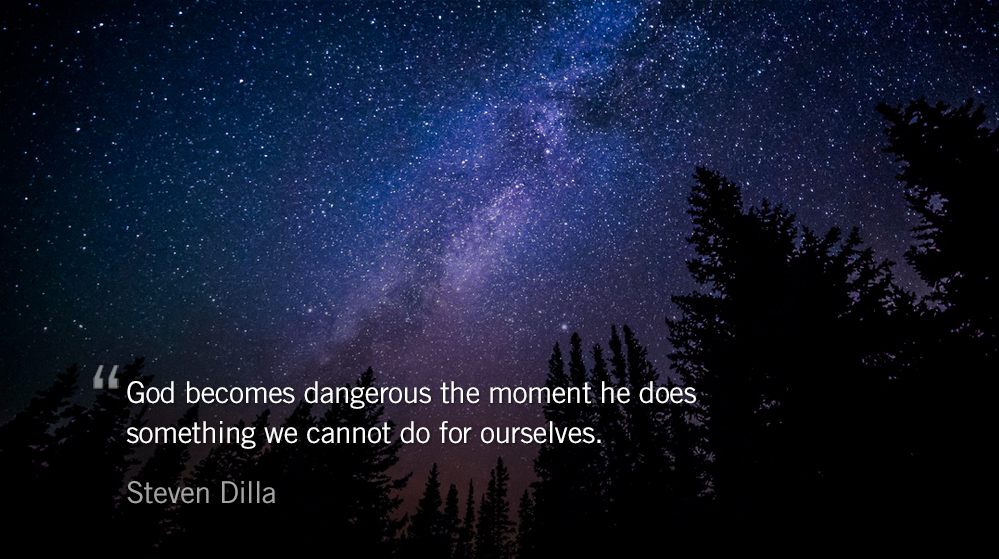Daily Reading
Genesis 15 (Listen – 2:53)
Matthew 14 (Listen – 4:14)
Matthew 14.25
Shortly before dawn Jesus went out to them, walking on the lake.
We’ve become remarkably good at explaining miracles. There are modern theories that posit the blind could have been healed with herbs transferred from Jesus’ hands. Others that propose those raised from the dead weren’t really dead, but in shock. There is even an academic paper which models the “hydrodynamic situation” of the sea parting in Exodus. “The Crossing is possible provided that a low-tide phase and a storm-induced drop in water level occur in the northern part of the Gulf of Suez.” [1]
Rather than saying miracles didn’t happen (Pew Research says nearly 80% of Americans believe they are possible) we explain how they happened via natural means. We’re comfortable with miracles so-long as God plays by our rules.
God becomes dangerous the moment he does something we cannot do for ourselves. We’ve seen the ways in which we can manipulate our own world, create our own cures, and solve life’s problems through our own ingenuity. When a problem exceeds those limits we want to know that we’ve reached the impossible, not the realm of dependence.
Increasing in understanding is a sign of a growing believer. The sign of a mature believer is that they don’t allow their pursuit of explanation to eclipse the realities of why God works and what he has done. Some of the Bible’s miracles might well have material explanation. God created everything; it’s no less a miracle when he orchestrates his creation for his purposes. Some of the Bible’s miracles likely don’t (or can’t) have such an explanation. Regardless of how each miracle occurred, natural or otherwise, the reason why they happened will always be supernatural. Christ’s miracles were practical expressions of God’s radical, persistent, and sacrificial love for humanity — and this is perhaps the greatest miracle.
This realization removes our facade of control. The single thing every miracle in scripture has in common is that the recipient had given up on, or exhausted, any natural way to solve their own problems or grow in their own faith. Our root problem is not the plausibility of miracles, but the in the belief that God is good. We struggle to trust that when we relinquish control to him our lives become immeasurably better as he does what we cannot do for ourselves.
Prayer
God, you demonstrated your own love for us in this: While we were still sinners, Christ died for us. (Romans 5.8) Thank you for the miracle of your love. We cannot explain it, but it has changed us forever. Help us not only to understand you, but to trust you.
Miracles and Parables Among Skeptics
Part 3 of 5, read more on TheParkForum.org
___________________
FAQs
How can I make a tax-deductible donation? Click here.
How can I get these devotionals in my inbox? Click here.
What is the reading plan this blog is based on? Click here.
___________________________________
Footnotes
[1] N. E. Voltzinger and A. A. Androsov. Modeling the Hydrodynamic Situation of the Exodus. Shirshov Institute of Oceanology (St. Petersburg Branch), Russian Academy of Sciences, 2002.








